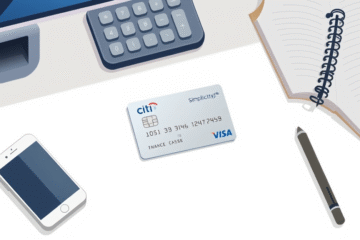Master Mindful Credit Card Use for Financial Health
Mindful Credit is essential for maintaining financial health in today’s world of easy access to credit.
As credit cards become more prevalent, it’s crucial to understand how to use them wisely to avoid falling into debt.
This article will explore key practices that promote responsible credit card usage, ensuring that you can reap the benefits without overspending or facing unnecessary financial stress.
By adopting these habits, you can harness the power of credit cards to support your financial goals while safeguarding your financial well-being.
Core Principles of Mindful Card Use
Credit cards offer unparalleled convenience by providing the ability to make purchases without carrying cash and offering protection against fraud.
Moreover, they offer perks such as rewards points, travel miles, and cashback options that can be highly beneficial when utilized wisely.
Through responsible spending, individuals can leverage these advantages to enhance their financial well-being.
However, holding this power demands caution to avoid slipping into the trap of overspending.
To maintain financial health, it is vital to pay off balances in full each month, thus averting costly interest charges and avoiding debt accrual.
On the flip side, the accessibility and ease of credit card transactions often lead consumers to accumulate debt if not used mindfully.
High interest rates can quickly transform a simple purchase into a significant financial burden if balances are not managed properly.
Monitoring spending and keeping track of card activity can help mitigate risks, safeguarding one’s financial standing.
Importantly, understanding the terms of your credit card agreement, such as fees and repayment schedules, ensures you remain informed and proactive in maintaining control over your financial journey.
By embedding responsible spending behaviors into daily habits, credit cards can transition from potential pitfalls to tools for achieving secure financial health.
Optimize Payment Habits
Optimizing payment habits is crucial for maintaining financial stability and achieving long-term goals.
Disciplined payment behavior not only prevents unnecessary debt but also positively influences credit scores.
By consistently making payments on time and in full, individuals can build a strong credit history that opens doors to better financial opportunities.
Pay Your Balance in Full
Paying your credit card balance in full every month is the most cost-effective approach to managing credit and building a healthy financial future.
By consistently paying off your balance, you benefit from an interest-free period, which eliminates the burden of accumulating interest charges.
This practice not only saves you money but also empowers you to maintain a strong credit score.
Moreover, as emphasized by Consumer Financial Protection Bureau’s insights, paying in full signals to lenders that you are managing debt responsibly.
It also ensures that your credit utilization ratio remains low, a critical factor in credit scoring models.
By adopting this disciplined approach, you mitigate the risk of falling into debt cycles and enhance your ability to achieve future financial goals, fostering a stress-free financial life.
Automate and Alert Your Payments
Effectively managing credit card payments with autopay and alerts ensures relevant financial health.
Setting up autopay to automatically debit from your bank account helps you avoid late fees and improve your credit score.
For more about automating your payments, explore Experian – Credit Card Autopay.
Meanwhile, real-time alerts notify you of suspicious activities, keeping your account secure.
Examples of helpful alerts include:
- Payment due reminder
- Suspicious activity
- Balance updates
Such measures not only safeguard you but also empower you to maintain control of your financial standing.
A simple tip is to regularly review your account statements to detect any inconsistencies early on.
Spend Within Your Means
Ensure you are spending within your means by establishing a structured budget to guard against credit card overspending.
Set spending limits based on your income and essential expenses, such as rent, utilities, and groceries.
Once you identify your monthly financial commitments, allocate a specific amount for discretionary spending and adhere strictly to these limits.
Transitioning towards more mindful spending requires understanding the impact of each purchase on your overall financial health.
Therefore, before making any purchase, evaluate its necessity and ensure it aligns with your budget.
Incorporating financial discipline plays a crucial role in sustaining your budget.
Avoid impulse purchases by giving yourself a cooling-off period before buying non-essential items.
During this time, assess whether the purchase is genuinely necessary or if it’s an emotional decision.
Monitoring your credit card activity frequently can help prevent overspending and alert you to any unauthorized transactions.
Taking responsibility for your spending by fully understanding your credit card’s terms and exercising financial discipline will help you achieve long-term financial stability.
Protect Your Credit Score
Your credit score is a vital component of your financial health, influencing everything from loan approvals to interest rates.
Maintaining a low credit utilization ratio ensures that you are using only a small portion of your available credit, which positively impacts your score.
Being aware of costs associated with credit usage allows you to make informed financial decisions, ultimately safeguarding your long-term credit health.
Maintain a Low Utilization Ratio
Credit utilization ratio represents the percentage of your total available credit that you are currently using.
It is a crucial factor influencing your credit score, with even slight variations significantly affecting the score.
Ideally, maintaining this ratio below 30 percent is advisable.
A lower credit utilization ratio indicates responsible credit management, boosting your creditworthiness.
As an effective strategy, regularly monitoring your outstanding balances and credit limits can be instrumental.
You might consider using TD Bank’s tips on improving your credit score to stay informed.
Additionally, making multiple payments throughout the month can further decrease your credit utilization ratio.
This approach ensures your balances remain low and helps you meet your payment deadlines.
Furthermore, spreading out expenses across multiple credit cards can also help manage the ratio effectively, as it prevents any single card from reaching a high balance.
Therefore, by practicing these mindful habits, you can optimize your credit score and enhance your financial health.
Know Your Card’s Terms and Fees
Understanding your credit card’s terms is crucial to safeguarding your finances and ensuring you are using your card wisely.
One key element is knowing the APR, or Annual Percentage Rate, which greatly impacts the overall cost of borrowing money.
According to Investopedia’s credit card interest guide, the daily rate derived from the APR determines the interest you will pay if you carry a balance.
Additionally, some cards might have an annual fee, which can add to the cost of credit.
Fully comprehending these charges allows you to make informed decisions.
Furthermore, being aware of Penalty APR is essential, as it’s a significantly higher interest rate triggered by certain violations, like late payments.
The Chase guide on Penalty APR highlights how such penalties can escalate your credit costs drastically.
By understanding these terms and conditions, you not only avoid unexpected costs but also cultivate a habit of mindful credit usage.
Setting up alerts can help you prevent these costly charges and keep your finances on track.
In conclusion, practicing Mindful Credit by managing credit cards responsibly can help you achieve your financial objectives.
By following these essential strategies, you can enjoy the advantages of credit without compromising your financial health.



0 Comments